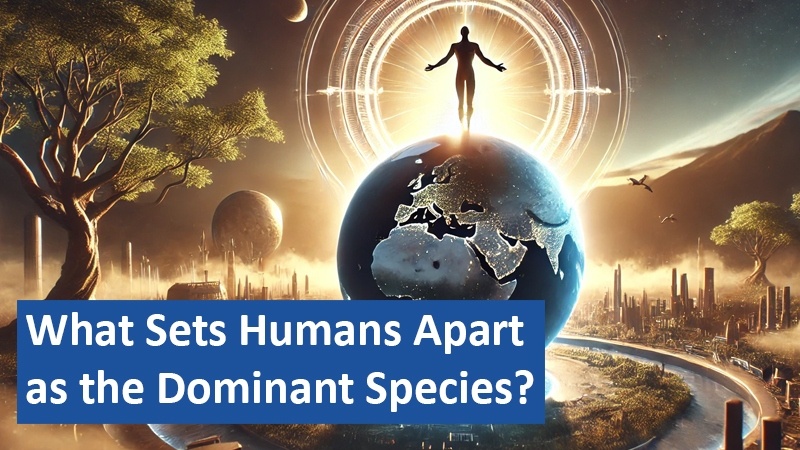Humans have long held the top position among Earth’s species. A new theory suggests our boundless imagination is what truly sets us apart. Unlike animals, human culture evolves without limits, constantly building on knowledge passed through generations.
By Joseph Gutierrez
The Open-Ended Nature of Human Culture

Researchers propose that humanity’s dominance stems from our ability to imagine limitless possibilities. Unlike animal cultures, which reach a plateau, human culture grows continuously. This adaptability allows us to create, innovate, and refine tools and behaviors to fit ever-changing circumstances. Anthropologists Thomas Morgan and Marcus Feldman argue that humans have an “open-ended” culture that perpetually accumulates skills and knowledge, distinguishing us from other species.
Animals and the Boundaries of Their Cultures
Animal cultures are not stagnant; many species exhibit behaviors that evolve over time. For example, humpback whales modify their songs, and chimpanzees teach offspring to use tools, creating localized traditions. However, these advancements eventually reach limits. Animals lack the capacity for infinite innovation, constrained by their inability to transmit increasingly complex knowledge across generations.
Parental Influence and Genetic Adaptation in Animals
In animals, certain behaviors are passed through parental teaching or epigenetic inheritance. Chimpanzees, for instance, teach young ones to crack nuts, while leafcutter ants transfer symbiotic fungi to their offspring, effectively domesticating them over millennia. Some insects, like locusts, undergo epigenetic changes to transform from solitary to swarming states depending on population density. Despite these remarkable adaptations, such systems eventually hit developmental ceilings.
Humans and Limitless Innovation
Unlike animals, humans can conceptualize and execute complex, multi-step tasks. For instance, preparing a meal involves organizing ingredients, cooking, and monitoring each stage—something beyond the scope of animal cognition. This ability to visualize and achieve intermediate goals allows humans to continuously advance, leading to the evolution of intricate cultural practices. Researchers believe this endless cycle of improvement is why humans dominate the planet.
Human culture’s open-ended nature enables us to thrive in diverse environments and perpetually refine our knowledge.
Based on information from www.scinexx.de and own research.